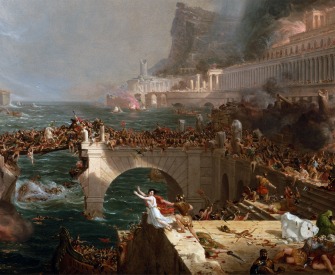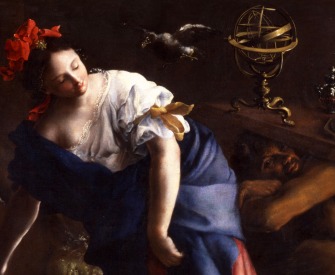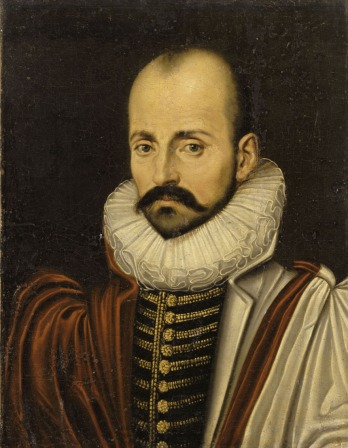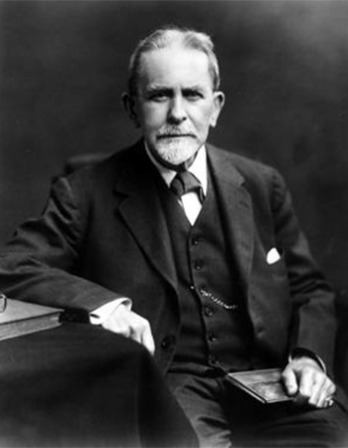Dear Friend,
I doubt not but you have heard of the dreadful calamity that has befallen this island by a terrible earthquake on the seventh instant, which has thrown down almost all the houses, churches, sugarworks, mills, and bridges in the island.
I had been at prayers, which I did every day since I was rector of Port Royal, to keep up some show of religion among a most ungodly and debauched people, and was gone to a place near the church, where the merchants used to meet, and where the president of the council then was.
To this gentleman’s friendship, under the direction of the gracious and overruling will of Providence, I ascribe my own happy and, I may add, miraculous escape; for by his pressing instances, I was prevailed upon to decline an invitation, which I had before accepted, to dine with Captain Rudend, whose house upon the first concussion sunk into the sea, and with it his wife, his children, himself, and all that were with him, who every soul perished in this general, this dreadful devastation. Had I been of the number of his guests, my fate had been involved in theirs. But, to return, we had scarce dined at the president’s before I felt the earth begin to heave and roll under me. Said I, “Lord, Sir, what’s this?” He replied, very composedly, “It is an earthquake, be not afraid, it will soon be over.” But it increased and we heard the church and tower fall, upon which we ran to save ourselves. I quickly lost him and made toward Morgan’s Fort, which, being a wide open place, I thought to be there secure from the falling houses. But as I made toward it, I saw the earth open and swallow up a multitude of people, and the sea mounting in upon us over the fortifications.
I then laid aside all thoughts of escaping and resolved to make toward my own lodging, there to meet death in as good a posture as I could. From the place where I was, I was forced to cross and run through two or three very narrow streets. The houses and walls fell on each side of me; some bricks came rolling over my shoes but none hurt me. When I came to my lodging, I found all things in the order I had left them. I then went to my balcony to view the street in which our house stood, and saw never a house down there, nor the ground so much as cracked. The people seeing me cried out to come and pray with them. When I came into the street, everyone laid hold on my clothes and embraced me, so that I was almost stifled with their kindness. I persuaded them at last to kneel down and make a large ring, which they did. I prayed with them near an hour, when I was almost spent with the heat of the sun and the exercise. They then brought me a chair, the earth working all the while with new motions and tremblings, like the rollings of the sea.
By that time I had been half an hour longer with them, in setting before them their sins and heinous provocations, and seriously exhorting them to repentance, there came some merchants of the place who desired me to go aboard some ship in the harbor and refresh myself, telling me that they had a boat to carry me off. I found the sea had swallowed up the wharf. I continued in the ship that night, but could not sleep for the returns of the earthquake almost every hour, which made all the guns in the ship to jar and rattle.
For every day this terrible earthquake happened, as soon as night came on, a company of lewd rogues, whom they call privateers, fell to breaking open warehouses and houses deserted, to rob and rifle their neighbors, while the earth trembled under them, and the houses fell on some of them in the act; and those audacious whores, who remain still upon the place, are as impudent and drunken as ever.
I have been twice on shore to pray with bruised and dying people, where I met too many drunk and swearing. I did not spare them, nor the magistrates either, who have suffered wickedness to grow to such a height. In the last sermon I delivered in the church, I set before them what would be the issue of their impenitence and wickedness so clearly that they have since acknowledged it more like a prophecy than a sermon. I had, I confess, an impulse on me to do it, and many times I have preached in this pulpit things which I never premeditated at home, and could not, methought, do otherwise.
Dear Friend,
Ever since that fatal day, the most terrible that ever I had in my life, I have lived on board a ship; for the shaking of the earth returns every now and then. Yesterday we had a very great one, but it seems less terrible on shipboard than on shore; yet I have ventured to Port Royal no less than three times among the shattered houses to bury the dead, pray with the sick, and christen the children.
It is a sad sight to see this harbor, one of the fairest I ever saw, covered with the dead bodies of people of all conditions, floating up and down without burial. For our burying place was destroyed by the earthquake, which dashed to pieces the tombs; the sea washed the carcasses of those who had been buried out of their graves. We have had accounts from several parts of this island, but none suffered like Port Royal, where whole streets, with their inhabitants, were swallowed up by the opening of the earth, which when shut in upon them, squeezed the people to death. And in that manner several are left with their heads above ground; only some heads the dogs have eaten; others are covered with dust and earth by the people who yet remain in the place, to avoid the stench.
Thus I have told you a long story, and God knows what worse may happen yet. I am afraid to stay, and yet know not how, in point of conscience, at such a juncture, to quit my station.
I am, Sir, yours,
Emmanuel Heath, from his correspondences. On June 7, 1692, an earthquake destroyed the Jamaican city of Port Royal, a buccaneer’s paradise described by Cotton Mather as “a very Sodom for wickedness.” Heath, the Anglican rector of Port Royal, had arrived in Jamaica only a short while before the earthquake; he afterward promulgated the widely held belief that the town’s devastation was evidence of divine retribution. Aftershocks dissuaded residents from rebuilding, and the city of Kingston was founded in July for survivors.
Back to Issue




